Jessica Bryant, a former personal trainer who was raised on a cattle ranch, started volunteering at Boggs Tract Community Farm in Stockton about eight years ago. This urban farm is managed by PUENTES, a nonprofit organization that provides urban families with the opportunity to grow and consume healthier foods, where Bryant served as urban forestry coordinator from 2016 to 2019. All of these experiences led Bryant to eventually launch her own business, Corn Poppy Produce, in 2019.
Comstock’s spoke with Bryant about how her business gives her a platform to promote healthier living in the Stockton community.
How did you first get involved with Boggs Tract Community Farm?
My son was a little guy and we heard about this urban farm where you could go volunteer. … I remember we would be pulling weeds and I would teach him about the dirt and plants. At that time, I didn’t know much and was just winging it. I loved giving that farm culture life to my son.
I met Eric Firpo, the (former) farm manager, and he did everything from growing to working with volunteers. That is where my relationship started with PUENTES. … I found a plot (on the farm) and spent hours upon hours growing produce. It opened the door for me four years later to lease a plot and start my own business on a bigger scale.
Did you have previous experience growing produce?
My family history is mainly cattle ranchers. My whole life I grew up between Stockton and Fresno on a cattle ranch. I would go to cattle auctions, ride horses and live a rancher lifestyle. My grandmother grew up in the (Great Depression). Her mother, father and grandparents all grew everything for themselves. They always worked outside. My grandfather is from Poland and he never went to school a day in his life. … When my grandfather made it to America, the first thing he did was purchase a small property for an orange grove. One property became two and eventually three. … For him, it was all about survival at that time. He started growing oranges and raising beef. He ultimately became a commercial grower, with his citrus and oranges grown for Sunkist.
All my experience with my family is with their ranch. I would be with my grandmother helping and listening to what they were doing on the ranch. I always loved to play in the dirt. I’ve been a personal trainer for years, but I wanted to slow down and do something that I loved.
How did you become an advocate for urban farming in Stockton?
It is important for me to show my community we can do so much, even though we have so little. It really is right there at your fingertips, and you have to see it and believe it to make it happen. I believe in health and wellness. … What we feed our bodies — physically, emotionally, mentally, spiritually — those are the very beginning steps to living a happy, healthy life. …
My son was diagnosed with Crohn’s disease about five years ago; six months of his life, he was withering away before my eyes. The doctor had misdiagnosed him several times and he (had) already lost 40 pounds. … The doctor finally said if you cannot wait any longer, check him in at Children’s Hospital Oakland for admission.
I was working for PUENTES at the time and on the farm growing produce. As I’m standing there — in the dirt taking it all in underneath the sun — I thought about what I was doing in my work. I am proud to say we grow with no chemical sprays at the farm. I am proud of what I feed my family, friends and community. I was already doing the necessary steps to lead a healthy, clean life for my family.
Jessica Bryant first got interested in farming produce by
volunteering at Boggs Tract Community Farm in Stockton.
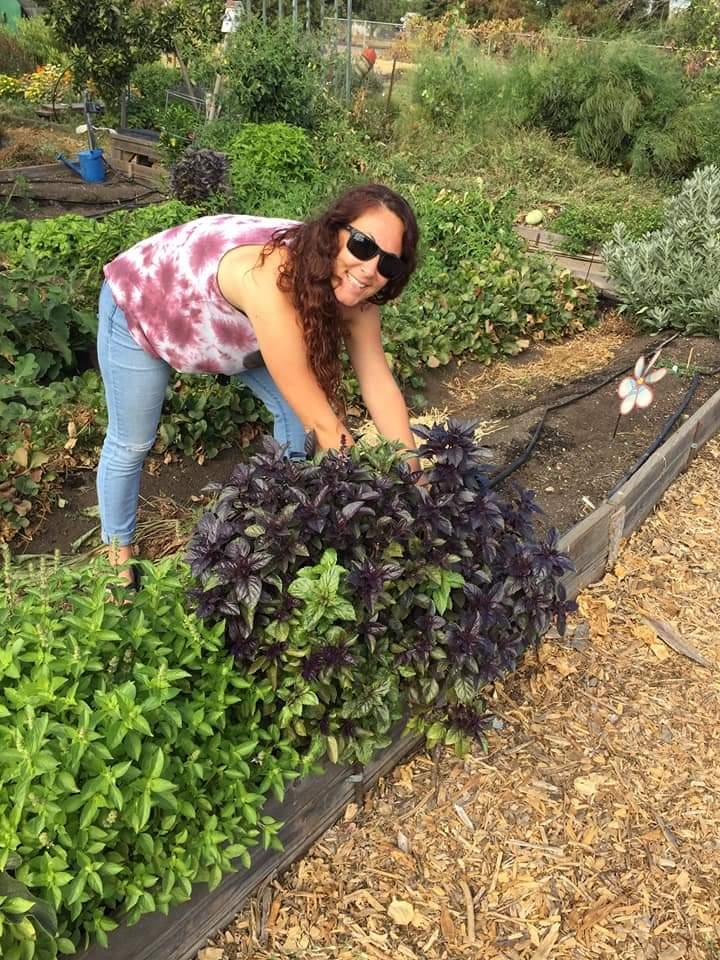
I packed a bag and drove my son to Oakland. We finally got the diagnosis of Crohn’s disease and we were already on the track to turn his life around. The children’s hospital is very thorough. They told me about this diet that would put him in remission. It is called the specific carbohydrate diet. … What that does is remove all processed foods. No sugars, no dairy or (processed) meats. I had to be mindful of what I was feeding him. … It pushed me further to dig deeper into what I was growing and what I was feeding my family and our community. That really was the starting point of what I became — the advocate of what we put into our body.
What made you start Corn Poppy Produce?
I had already been building relationships in the community, doing pop-up markets at Miracle Mile, University of the Pacific and on the farm. … (In 2019, PUENTES no longer had the funding to keep the farm operations going, but Bryant says the nonprofit has since acquired additional funding; she is no longer an employee). I did not want to risk losing those contracts and relationships. At that time, I only had a 20-by-20 plot on the farm. I was also growing in my backyard. I said, I don’t care how I’m going to make it happen, but I believe I can do it. I told them, let’s figure out a way that I can do it and continue growing to start my own business (by leasing a plot on the Boggs Tract Community Farm). … I am a one-woman show. I’ve done it all on my own. Even right now, it is all baby steps.
What kind of programs do you have for children in the community?
I provide produce to 10 school sites (in San Joaquin County) and they (each) have their own student farmers’ market. Each school has a set amount of funds to spend on produce for these student farmers’ markets. The students keep all the proceeds from these markets and put it back into their running clubs for travel expenses, sneakers and all the upcoming runs for kids to participate in. (This program is made possible by a Kaiser Permanente grant to the San Joaquin County Office of Education; Bryant contracts with SJCOE to provide the produce.) It is because of these markets they can have better opportunities and experiences. The children now have to be business entrepreneurs and run their markets. They figure out the pricing, marketing, bookkeeping and customer service.
Every year, I put together a field trip for these students (in the running clubs) to come out to the farm. The first year we were just starting out, so we did a pizza party using the wood-burning brick oven on the farm. We coordinated this field trip to show them everything about the farm from the chickens to the crops. Our second year, we had students plant several things and then take them home to their families. The third year they got to play in the soil and we learned about compost. This year we didn’t get to do any activities because of the pandemic.
How has the coronavirus pandemic affected your work?
All my farmer’s markets shut down. They were mostly at schools, downtown and Yosemite Street. … I figured out a way to maintain social distancing. My idea (was) for people to pull up in their car and pop open their trunk, so I can put a box of produce in their car to go. They have to pre-order and prepay, and then I prepack all the produce. They contact me and I set up a time for pickup in Stockton.
I tried to have an added-value product, so they have the option of purchasing not only a bounty box, but an added speciality box. They can get it with homemade, sourdough bread or a speciality item we have available for the week.
Another thing that changed was everything I was doing through the San Joaquin County Office of Education with our program with the students. I was delivering produce everything Thursday to these school sites, but now all the schools shut down. I worked directly with Nora Hana to come up with an idea. Several of the school sites were giving food and we thought we could give fresh produce to the students and families. We had to get approval from Kaiser because we are donating it to families and we got approval. I will (soon) be delivering bounty boxes full of produce I’ve grown on the farm for the schools to distribute to students and families.
Recommended For You
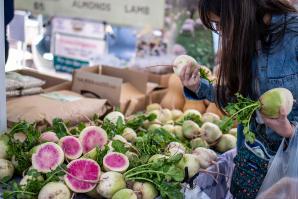
Growing Pains
Local farmers work hard to respond and adapt to the coronavirus pandemic
Comstock’s spoke with Paul Towers, executive director of Community Alliance with Family Farmers, a Davis-based nonprofit dedicated to supporting family farmers and community-based agriculture, to find out how small farmers in the Capital Region are faring during the coronavirus pandemic.
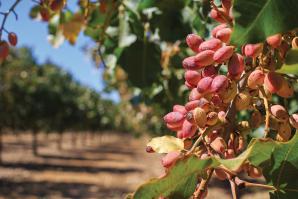
Nut of the Future?
With droughts inevitable, more farmers are switching from almonds to pistachios, but not everyone is happy about it
Almond trees and grapevines will die if deprived of irrigation for a year or less in a dry place like the San Joaquin Valley, but pistachios can survive for years with almost no water. That means, in crisis-level droughts, the trees might persist where virtually all other crops die.
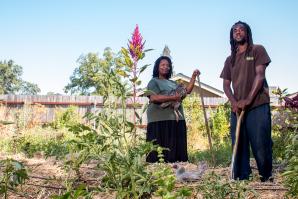
Grow Your Own Way
Does the evolution of urban agriculture reveal a schism in the community or a movement picking up steam?
Ten years into the movement, and urban farming in the Sacramento region has garnered widespread support. Agrihoods now represent the latest development in the movement — but will they strengthen or overshadow it?
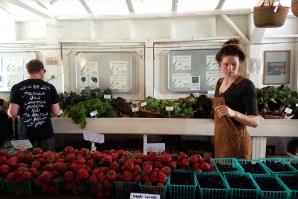
Life on Sacramento’s Urban Farms
The Sacramento region’s urban farming movement keeps growing and growing, but the two farms that started it all — Soil Born Farms and Yisrael Family Urban Farm — remain the hub of the activity. Both farms focus on education as critical to expanding the movement even more, and giving residents old and young the know-how and tools to grow their own food.



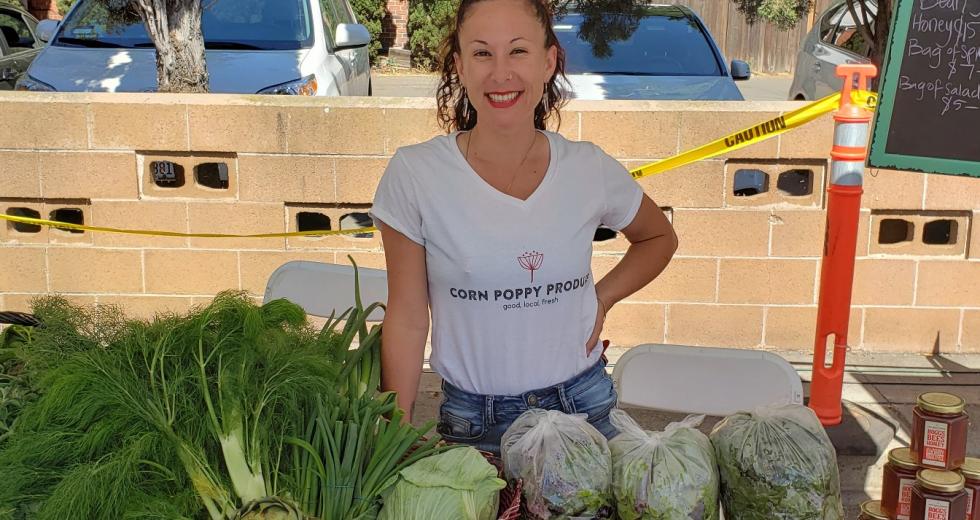
Comments
Locally, with a lot of these types of stories, there should be a link at the bottom of the story to take you to the Entrepreneur's website/app. This person's company is mentioned once in the body of the story, and once at the top of the story, and that's it. In order for her to be able to sustain herself, add more headcount, grow more produce, she is going to need more paying customers. Why not send those interested to the one place that all who are interested in what she is doing .... be able to contact her? That's also part of the 4th Estate's job (or should be). Good article.
Good point, George. We usually link to the source's website within the text. Here is the Corn Poppy Produce Facebook page: https://www.facebook.com/pages...